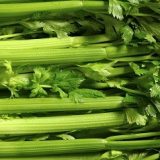Wine Tips You Need to Know

Geri Wohl, CNC www.bettereatingcoach.com
Pinot noir, Chardonnay, Zinfandel, Chenin Blanc or Cabernet – which of these are your favorites? Wine has been part of our culture for thousands of years. Wine and tea were ways to consume fluids without the waterborne organisms that can make us sick. Tea prevents illness due to killing these organisms by boiling. But wine and other spirits perform this function by fermentation.
History suggests that winemaking began in the Mesopotamia region between 6000 and 4000 BCE. However, the origins of modern day winemaking comes from ancient Greece. Wine has been documented throughout history in many societies and plays important roles in various religions even today.
Many of us may have experienced the relaxing effects that wine has on us. It’s important that if you choose to consume wine (for those over 21) that you do so in moderation and never drink and drive. Wine can inhibit good decision making (as can consuming any other alcoholic beverage). While I will share the positive benefits of wine, I will offer some of the negative consequences of imbibing wine as well.
Wine is typically made from different varieties of grapes. Once the grapes achieve the correct sugar content, they are harvested and prepared for fermentation. For red wine production, the must (or pulp) of red or black grapes are used in addition to the skins. The addition of the skin is what gives grapes their deep red color as well as some specific health benefits. For white wine, the grapes are fermented without the skins. Rose wines are produced from red grapes that are in contact with the skins for just enough time to impart the pinkish color. The quality of the grapes is paramount in the quality of the wine. The quality is affected by a variety of factors including the weather, the soil conditions, the time of harvest and the pruning of the vines.
Red wine contains some important antioxidants that appear to be heart healthy. According to the Mayo Clinic, red wine contains more antioxidants than white wine and other types of alcohol. These antioxidants play a role in keeping us healthier by protecting the body from free radical damage and thus our cells. The antioxidants in red wine may increase the good cholesterol (HDL). Also, the compound in red wine called resveratrol may prevent clot formation and thus reduce the risk of heart disease and strokes. Resveratrol may reduce heart attack risk by up to 30%. Eating a heart healthy diet and exercising are just as important to obtain additional cardiac benefit.
In addition, resveratrol and other flavonoids in red wine have been associated with having some anti-cancer effects including inhibiting cancer cell formation. The NIH has found that resveratrol may also play a role in reducing inflammation throughout the body. According to Cedars Sinai Medical Center, the skins of red grapes contain chemical properties that act as phytoestrogens in women which could be help modulate menopausal symptoms. The polyphenols that include resveratrol have been shown to have some antibacterial properties. These potential positive benefits are in no way a license to drink wine. Current research is ongoing to see if eating red grapes or other resveratrol containing foods such as blueberries and dark chocolate will give the same benefit without the alcohol.
Each 6 ounce glass of dry red or white wine has between 100-175 calories with about 3 grams of sugar. Wine is comprised mostly of water with about 1.5% coming from solid pieces. The rest of wine is alcohol and carbohydrates (sugars). If one is binge drinking or drinking on an empty stomach, the alcohol is metabolized very quickly and can enter the blood stream and brain and negatively affect your mental function. Since wine is primarily empty calories, it can contribute to extra pounds as more sugars are converted to fat which and then stored.
Furthermore, the liver as the organ that needs to detoxify all the toxic material in our bodies has added stress when we consume wine or other alcoholic beverages. The Chinese believe that the liver is the master organ of the body. The liver’s role is to cleanse and filter the blood so that every cell in the body can be bathed in healthy, nutrient-rich blood. With all the chemicals in our environment in addition to its normal functioning of cleaning the waste by-products of our metabolism, the liver already has an extra burden. Adding wine to the mix creates extra stress. Effects of drinking too much wine can be fatty liver or cirrhosis. If we are missing the liver-supporting nutrients, then the liver will be unable to do its job resulting in a sluggish liver and potentially trapping the harmful fat soluble chemicals in our adipose (fat) cells which can remain in those cells for years. Antioxidants in the forms of vitamin C, vitamin A and vitamin E-rich foods are important additions to the diet to allow the liver to function optimally. Also, liver supporting foods can strengthen its abilities. For a liver supporting salad, see the roasted beet salad at http://www.bettereatingcoach.com/recipe-late-springearly-summer-2012.html. If you feel you want more information about specific ways to detoxify, please contact me through my website, http://www.bettereatingcoach.com.
As you can see, wine has been around for quite a long time and has some benefits but each person needs to weigh whether it’s the right choice for himself/herself. If you decide to drink wine, please remember to do so in moderation.
(c) Geri Wohl, CNC









